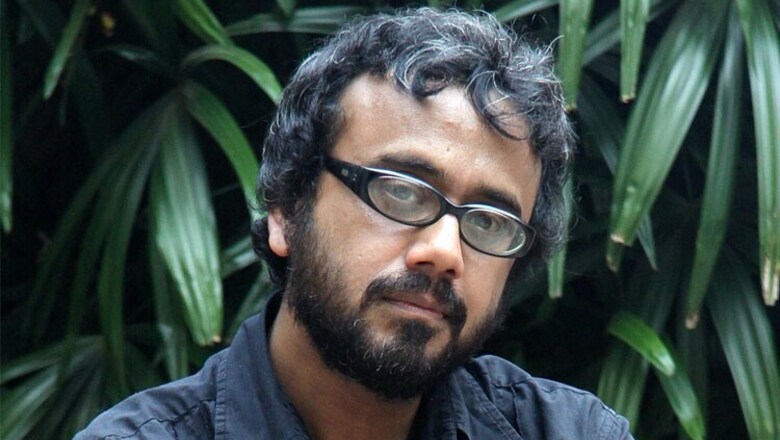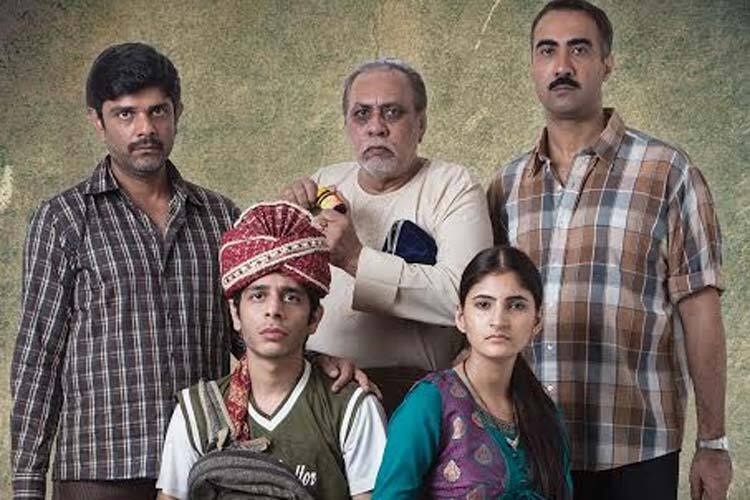
views
Mumbai: His film, ‘Titli’ has opened to rave reviews and producer Dibakar Banerjee chose to speak only about his films during an interaction at the ongoing Mumbai Film Festival.
“I will only talk about MAMI and Titli today,” warned Banerjee as we sat down for a quick chat at a plush suburban hotel in Mumbai which is playing host to its delegates for the Jio MAMI 17th Mumbai Film Festival.
Banerjee along with filmmaker Neeraj Ghaywan, writer Juhi Chaturvedi, actresses Parineeti Chopra and Radhika Apte and actor Sooraj Sharma form the jury of ‘Dimensions Mumbai’ a category that will select the best of documentary shorts.
Dressed in a grey Kurta and white churidar, Banerjee was willing to talk about his recent film ‘Titli’ a hard hitting tale of crime and a dysfunctional family. The film had been screened at Cannes last year and it took more than a year to get it commercially released in India. The censor board had asked the makers to tone down the language of the film. “The Censor board asked us to cut a few dialogues. So we did that. Then they asked us to cut some more- so we that as well,” said the filmmaker.
Does he feel that the Censor board has become more stringent in the recent past about films? “Well, it’s been like this forever. It’s just that now, as we are seeing the confusion about laws and rules inside the censor board- as to how a film should be passed – that it is becoming a part of public debate now. The debate is happening now because of the confusion,” explained Banerjee. “There has been a lot of confusion about what they want. First there was a diktat given by the Censor board, then we were told there is no such diktat, then again we were told there are rules that we need to follow. So we are all confused. At least, I as a producer, I am confused.”
Banerjee, who has been associated with films like ‘Oye Lucky, Lucky Oye’, ‘Khosla Ka Ghosla’, ‘Love Sex Aur Dhoka’ is known to push the envelope with each of his films. They don’t really fall in the conventional Hindi films category, and yet manage to impress the audience. But a film like ‘Titli’ – which is full of violence and abuses, is a first from Banerjee’s stable (he is the producer of the film). I ask him will the audience be okay to take in such an unusual film. “The last 10 years has been like this. The audience is welcoming unusual cinema for more than a decade now. In fact I am sitting here right now with two other people whose films – despite being non conventional- have been loved by the audience,” Banerjee said and pointed out towards Neeraj Ghaywan and Juhi Chaturvedi. Chaturvedi chipped in “There is more space for such films now and definitely more acceptance and more space for new kind of films.”

Is the film industry slowly giving more importance to content driven films? “It is not like good cinema did not exist before. But the language was different. If a ‘Deewar’ was made in today’s time, I am sure the treatment would be different perhaps more realistic. So good, content driven films were always there,” reasoned Chaturvedi.
Chaturvedi and Banerjee, known for realistic cinema, both state that the larger than life, typical Bollywood films will always exist. “The world knows Bollywood for such films, so no they will ever cease to exist. For most people, such films work the most, they enjoy watching such films. So the regular song and dance routine will always exist. Maybe they will be presented little differently but they will stay,” said Chaturvedi.
Dibakar stated that “as long as there is poverty in India, as long as social inequality exists in the society- which forces us to escape, such film will do well. Till the time there not enough Broadway theaters to go to, enough football fields to play at, the star based, and item filled cinema will live. Films are not by themselves, films are dictated by what we are and therefore what we want to see.”
How relevant is MAMI for the Indian audience and the film industry? “Like Anupama (Chopra) mentioned on the opening night- it holds relevance because it is the only art form that connects people. It provides a platform for many more stories to be told, many people to get connected," said Juhi.


















Comments
0 comment